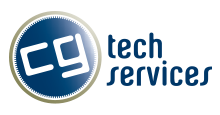Telemedicine — the practice of administering medical care remotely — is increasing in popularity because of its practicality. Most healthcare businesses have been implementing it for decades. Because of advancements in the healthcare industry, the variety of devices used, communication speed, and overall service quality, telemedicine has vastly improved recently.
Here’s what to look for in apps or wearable tech
Are you overwhelmed by the many choices you have in getting the right technology to monitor your health? Do you download an app on your mobile to track your pulse rate? Or buy a wearable device that can tell you more about your health? While it’s best to leave the professional recommendations to your healthcare provider, it would be great if you’re also in the know, so you have a better idea of what suits you.
Big data helps hospitals in a big way
The healthcare industry struggles when it comes to trying to keep up with the latest technology on the market. Thankfully, the rise of more affordable cloud solutions and increased storage availability mean hospitals and clinics can finally catch up and implement direct improvements to hospital performance, such as lowering hospital readmission rates.
Turn Alexa into your office assistant
Alexa has made Amazon proud by going beyond basic functions like providing weather updates, streaming music, and setting alarms. As her developers continue to improve on her capabilities, business users can look forward to a revolutionary, one-of-a-kind office assistant.
Keep healthcare data safe from hackers
The healthcare industry is shifting their data to cloud services to serve their patients better and improve accessibility. This puts personal health information (PHI) and personally identifiable information (PII) at risk of getting stolen by hackers.
3 Health IT trends you should investigate
Healthcare IT is on the cusp of several game-changing IT trends. They’re things that are likely to derail the healthcare industry’s apple cart, as it were, by introducing completely new ways of diagnosing patients, conducting clinical trials, treating illnesses, and much more.
Why you need managed services in healthcare
Cybercriminals are increasingly targeting the healthcare industry for its perceived vulnerability. Nowadays, more and more hospitals are realizing that overall patient care not only involves medical attention, but also entails securing patient data. For many healthcare organizations, it’s crucial to work with the right managed services provider (MSP) to ensure transactions are seamless and patient data is constantly protected.
EHRs vs paper records: Which is better?
Is digital the way to go for the healthcare industry? Experts see no other way forward, as demonstrated by the popularity of electronic health records (EHRs). However, critics of this new recording process have pointed out major flaws that aren’t present in its traditional counterpart: paper-based recording.
How to safeguard PHI
Hospital data breaches are emerging at an alarming rate and show no signs of slowing down in 2019. That’s because data fetches a hefty price on the black market, making hospitals prime targets for cybercriminals. The best way to defend against these threats is to arm your team with the following systems and protocols.
Is the IoT a boon or a bane in healthcare?
The rule of cybersecurity states that anything that connects to the internet can be hacked. With the increasing popularity of Internet of Things (IoT) in the healthcare industry, every business should be on alert.
Devices that contain a treasure trove of patient data are attractive targets for cybercriminals.
